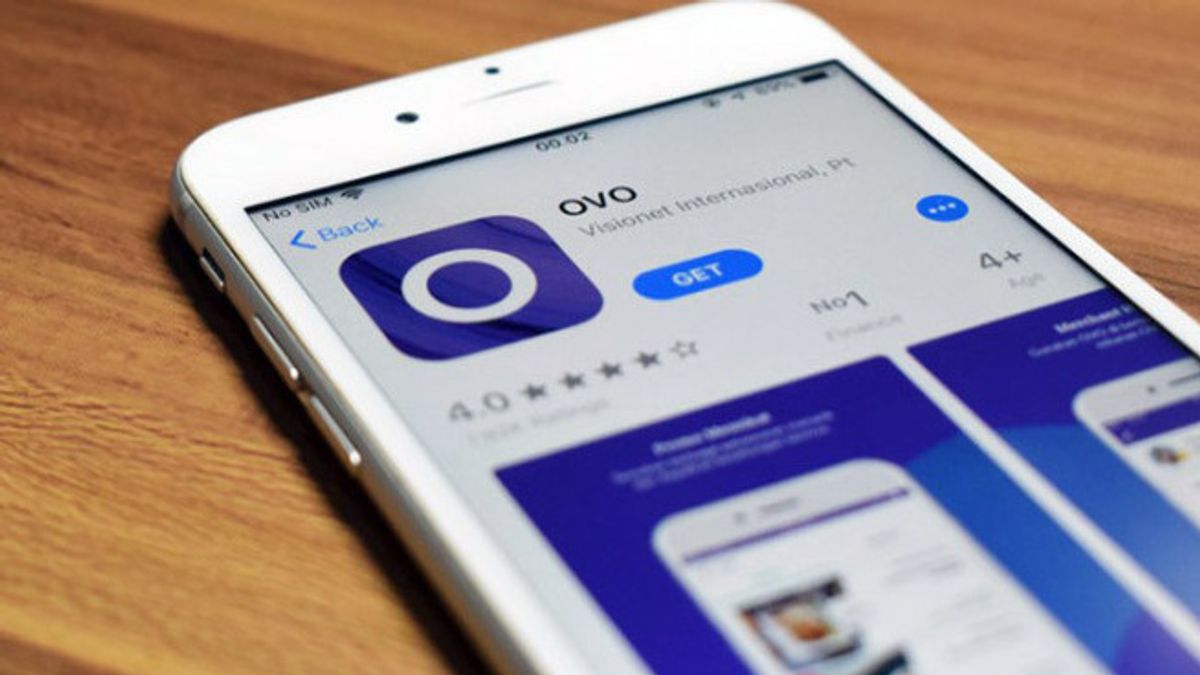JAKARTA - A survey conducted by CORE Indonesia shows that most MSMEs that adopt payment methods using application-based electronic money such as OVO find it helpful.
CORE Indonesia Research Director Piter Abdullah stated that this was revealed in a survey conducted by his party on 2,001 MSME partners in 12 cities in as many as eight provinces in early 2021.
"The results of the study show that most of the MSME actors who are respondents have found it helpful since joining the OVO digital payment platform," Piter said, quoted from Antara, Friday, October 1.
Piter explained that the improvements experienced were not only related to cashless payment facilities as an alternative for customers who want to avoid using cash.
In addition, he said, most survey respondents also reported an increase in daily transactions and monthly income, and now use banking services more often than before joining OVO.
He explained that as many as 73 percent of MSMEs currently use electronic money more often for transactions. Around 70 percent of MSMEs experienced an increase in daily transactions with an average increase of up to 30 percent.
Furthermore, the average monthly income also increased by 27 percent for 68 percent of respondents who experienced an increase in income after joining OVO.
"While the OVO ecosystem such as Grab also has a significant social-economic impact for MSMEs in the midst of the COVID-19 pandemic. Around 91 percent of MSME actors surveyed have been connected to the OVO-wide ecosystem, and have received tangible benefits with an average contribution of the OVO ecosystem reaching 18 percent. of their total sales," said Piter.
Senior Economist and Founder of CORE Indonesia, Hendri Saparini, explained that from the CORE survey, it was found that the behavior of business actors could adapt to the existing digital transformation.
"So, there is no need to worry that business actors will not follow the behavior change, especially MSMEs. In fact, business actors are also quick to adopt innovations in the field of digitizing payments. Furthermore, this becomes an asset for the government, because digitizing payments produces extraordinary big data," said Hendri.
SEE ALSO:
Deputy for Micro Business at the Ministry of Cooperatives & SMEs, Eddy Satriya, appreciated CORE Indonesia's research and stated that digital payment adoption was accelerating in line with the COVID-19 pandemic, particularly affected by various mobility restrictions.
"MSMEs play an important role as the driving force of the economy, especially in developing countries," he said.
Based on data from the Central Statistics Agency, more than 64 million Indonesian MSMEs contribute about 61 percent of the national GDP.
Eddy also said that digitizing payments is not only beneficial for MSME actors but also for the wider community.
In other words, he continued, the digitization of payments has a major impact on efforts to advance the nation. The Ministry of Cooperatives and SMEs is also optimistic about the target of 30 million MSME players to transform to digital by 2023.
The English, Chinese, Japanese, Arabic, and French versions are automatically generated by the AI. So there may still be inaccuracies in translating, please always see Indonesian as our main language. (system supported by DigitalSiber.id)
















